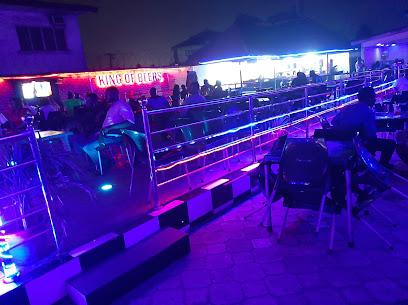
Bridge of No Return: A Journey Through History
Explore the Bridge of No Return in Ikot Abasi, a historical museum that narrates the poignant stories of the transatlantic slave trade and local culture.
Nestled in the heart of Ikot Abasi, the Bridge of No Return stands as a poignant reminder of the region's historical significance. This museum attracts tourists eager to understand the local culture and heritage, offering an enriching experience filled with stories of resilience and remembrance.
A brief summary to Bridge of no Return
- Ikot Abasi, Akwa Ibom, NG
- Monday 12 am-12 am
- Tuesday 12 am-12 am
- Wednesday 12 am-12 am
- Thursday 12 am-12 am
- Friday 12 am-12 am
- Saturday 12 am-12 am
- Sunday 12 am-12 am
Local tips
- Visit during the early morning or late afternoon for a quieter experience and better lighting for photography.
- Engage with local guides to gain deeper insights into the historical significance of the site.
- Bring a notebook or camera to document your thoughts and experiences, as the site is very evocative.
- Wear comfortable shoes, as exploring the area might involve some walking.
- Check for any local events or exhibitions that may be happening during your visit for a more enriching experience.
Getting There
-
Car
If you're traveling by car, start your journey in the city of Enugu. Head southeast on the Enugu-Port Harcourt Expressway (A3) for approximately 2 hours, covering around 150 kilometers. Follow the signs to Ikot Abasi. Once you reach Ikot Abasi, navigate to the location at latitude 4.5723 and longitude 7.5469. Look for local signs indicating the 'Bridge of No Return' to guide you.
-
Public Transportation
To reach the Bridge of No Return via public transport, take a bus from Enugu to Uyo, which is about a 2-3 hour ride. From Uyo, you can take a local taxi or a motorbike (okada) to Ikot Abasi. The taxi cost may range from 1,500 to 3,000 NGN, depending on your negotiation skills. Once in Ikot Abasi, ask locals for directions to the Bridge of No Return, which is situated near the coordinates 4.5723, 7.5469.
-
Local Taxi or Okada
If you are already in Ikot Abasi, you can hire a local taxi or an okada to take you directly to the Bridge of No Return. This would typically cost around 300-800 NGN, depending on the distance and your bargaining. Ensure you confirm the fare before the journey. The locals will be familiar with the site, so don’t hesitate to ask them for precise directions.
Discover more about Bridge of no Return
Iconic landmarks you can’t miss
Township
5.8 km
Explore the vibrant Township of Ikot Abasi, a cultural hub filled with local vendors, community spirit, and authentic Nigerian experiences in Akwa Ibom.

Chief Waribo Uranta
6.4 km
Explore the heritage of King Jaja at Chief Waribo Uranta, a captivating tourist attraction in Opobo Town, Rivers State, Nigeria.

King jaja monument
6.6 km
Discover the King Jaja Monument in Opobo Town, a striking tribute to a legendary leader and a window into Nigeria's rich cultural history.
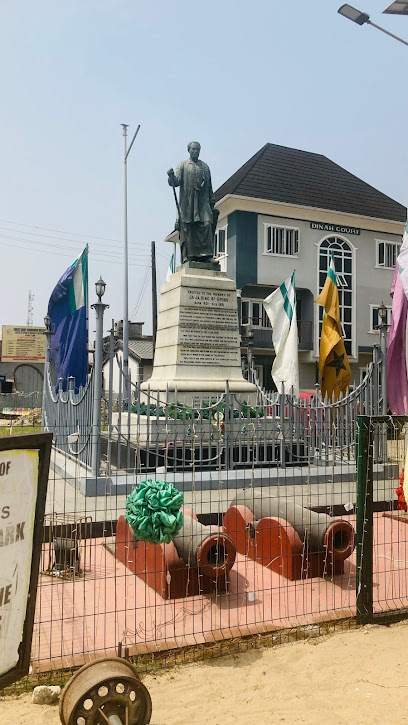
Ngia's Comp
10.5 km
Discover the rich heritage of Kalasunju at Ngia's Comp, a captivating historical landmark that tells the stories of the past.

King Otuo of Unyeada Monument
12.5 km
Discover the King Otuo of Unyeada Monument, a historical landmark that celebrates the rich heritage of Rivers State, Nigeria.

Udua Nka (Market)
42.9 km
Discover the heart of Eket at Udua Nka Market—where local culture, vibrant flavors, and authentic experiences come together.

Ibeno Beach
51.3 km
Discover the tranquil beauty of Ibeno Beach in Akwa Ibom, Nigeria, a paradise for sun-seekers and cultural explorers alike.

Tilapia Island Resort - Abak
53.1 km
Experience the vibrant atmosphere and refreshing drinks at Tilapia Island Resort in Akwa Ibom, Nigeria—your ultimate bar destination for relaxation and fun.
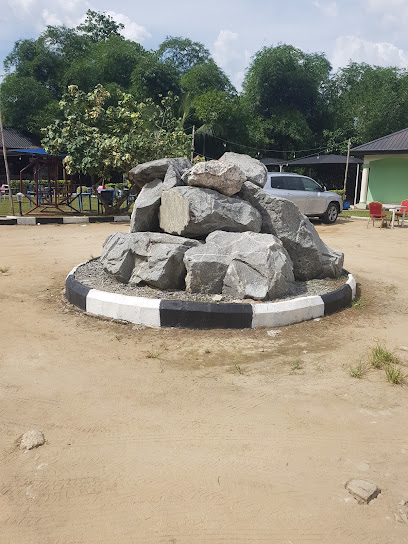
Oyigbo River State
57.3 km
Explore Oyigbo River State, a historical landmark rich in culture and natural beauty, nestled in Nigeria's Rivers State.

Church Of Christ, Use Ikot Ebio
60.6 km
Explore the Church of Christ, Use Ikot Ebio in Uyo, a serene spiritual haven reflecting the rich culture and faith of Akwa Ibom.

Godswill Akpabio International Stadium
61.1 km
Experience the vibrant atmosphere of Godswill Akpabio International Stadium, a premier venue for sports and cultural events in Uyo, Akwa Ibom.

Biodiversity Preservation Center
61.2 km
Explore the Biodiversity Preservation Center in Uyo, a vibrant zoo dedicated to wildlife conservation and education, perfect for family outings.

Anisoon Unique Homes
61.8 km
Experience comfort and local charm at Anisoon Unique Homes in Uyo, the perfect lodging choice for exploring Akwa Ibom's vibrant culture.

Anua Obio Offot
61.9 km
Discover the vibrant culture and community spirit at Anua Obio Offot, a unique center in Uyo, Akwa Ibom, that offers a true taste of Nigerian hospitality.
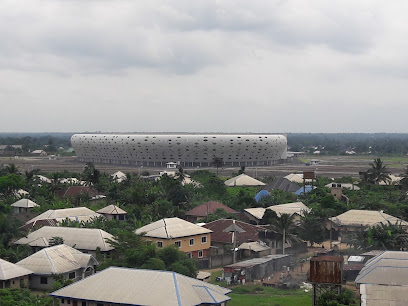
Boss Empire Nigeria
62.1 km
Explore Boss Empire Nigeria in Uyo for a unique fashion experience combining local craftsmanship with contemporary style.

Unmissable attractions to see
Amalgamation House
0.3 km
Discover the historical significance of Amalgamation House in Ikot Abasi, a landmark that captures Nigeria's rich cultural heritage and diverse history.
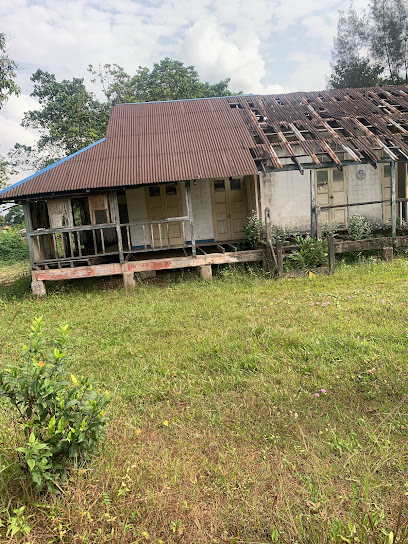
An Overview of Minimah Community
7.5 km
Explore Minimah Community, a serene tourist attraction in Opobo, Nigeria, where nature and culture converge for a unique travel experience.
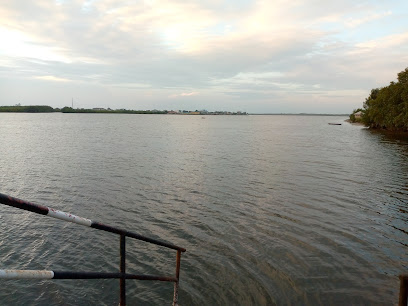
Chief Oko sunju Minimah palace
8.0 km
Discover the historical and cultural richness of Chief Oko Sunju Minimah Palace in the tranquil setting of Iloma, Rivers State, Nigeria.
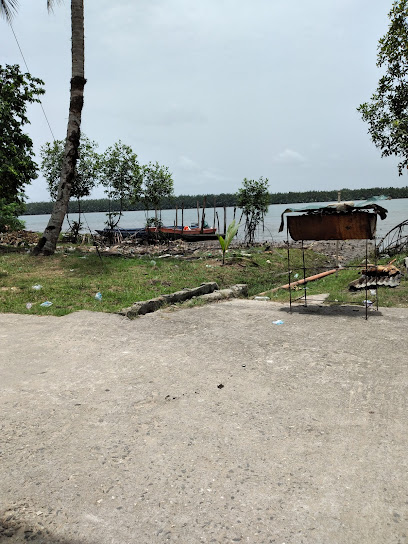
Ngo Elephant Forest Reserve S
20.3 km
Explore the rich biodiversity of Ngo Elephant Forest Reserve, a national forest sanctuary in Rivers State, Nigeria, perfect for wildlife enthusiasts and nature lovers.

Finima Nature Park
45.5 km
Experience the tranquility of Finima Nature Park, a nature preserve in Rivers, Nigeria, teeming with wildlife and lush landscapes perfect for relaxation and exploration.
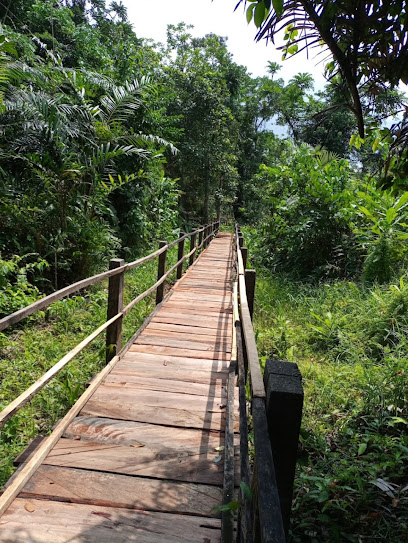
Sand City Beach abuloma
58.1 km
Experience the beauty of Sand City Beach in Abuloma, where golden sands meet gentle waves, creating a tranquil escape for every traveler.
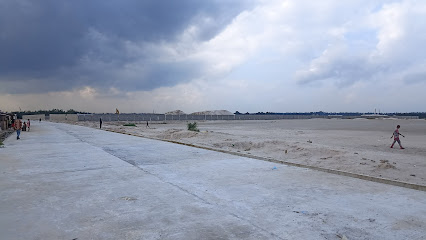
Ph tourist beach
59.8 km
Experience the beauty and vibrancy of Ph Tourist Beach in Port Harcourt, where relaxation meets adventure amidst stunning coastal views.
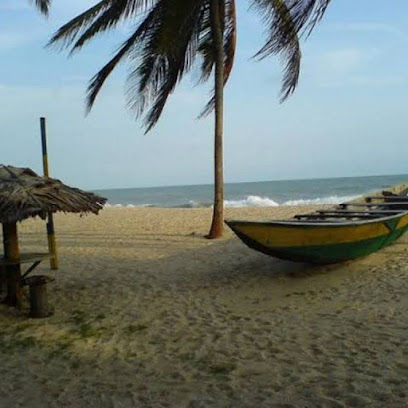
Immanuel Gardens
59.8 km
Discover tranquility at Immanuel Gardens, a lush park in Abuloma, Nigeria, perfect for relaxation, picnics, and enjoying nature's beauty.

De Darlings Farms and Resorts
60.2 km
Discover the beauty of nature at De Darlings Farms and Resorts, where agriculture meets wildlife in the heart of Port Harcourt.

Jubilee Park
61.2 km
Explore Jubilee Park: A serene urban oasis in Port Harcourt, perfect for relaxation, picnics, and enjoying nature's beauty.
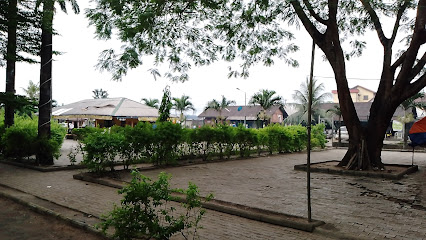
Eleme junction park
61.5 km
Experience the lush tranquility of Eleme Junction Park in Rivers, Nigeria, a perfect blend of nature and community spirit for all visitors.

Serenity Centre
61.6 km
Experience the tranquility of Serenity Centre in Port Harcourt, a lush park perfect for relaxation and memorable events amidst nature's beauty.
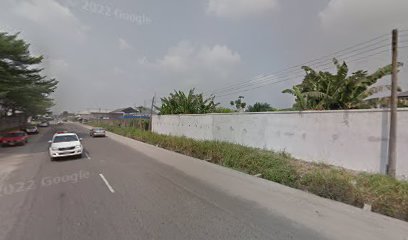
Port Harcourt Zoo
61.6 km
Explore Port Harcourt Zoo, a vibrant destination showcasing diverse wildlife and promoting conservation in the heart of Rivers State.
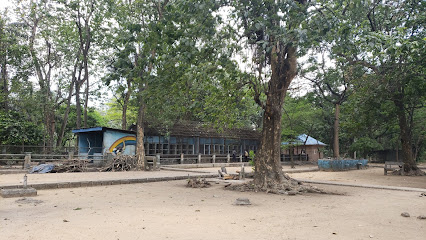
Badume Park
62.0 km
Experience the serene beauty and recreational charm of Badume Park, a perfect getaway in Port Harcourt for relaxation and family fun.

Heinz plazi
62.5 km
Discover Heinz Plazi, a peaceful park in Uyo, Akwa Ibom, perfect for relaxation and family outings amidst lush greenery and serene surroundings.
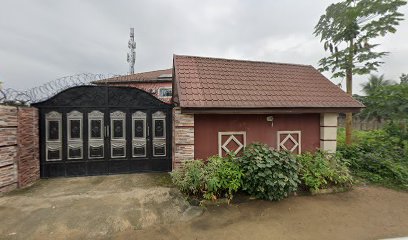
Essential places to dine
Dorathy Restaurant
3.2 km
Experience authentic Akwa Ibom cuisine at Dorathy Restaurant, where local flavors meet warm hospitality in Ikot Akpanata.
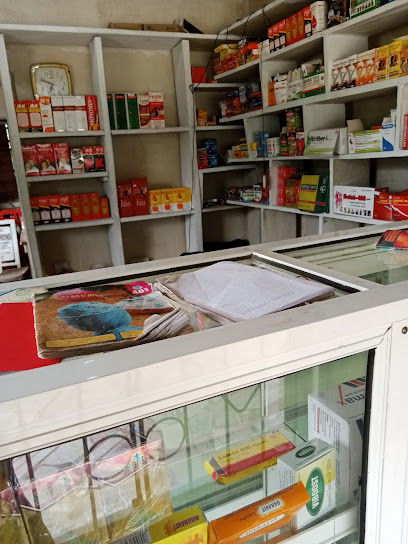
Bangha Restaurant
22.3 km
Experience authentic Nigerian cuisine at Bangha Restaurant in Notem—where tradition meets taste in a delightful dining atmosphere.
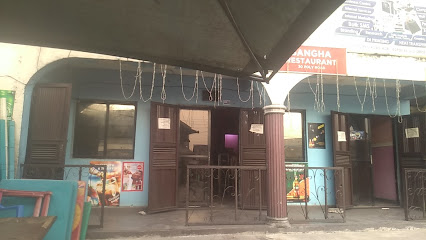
Zillion Restaurant and Catering
43.8 km
Discover the flavors of Akwa Ibom at Zillion Restaurant and Catering - where culinary excellence meets warm hospitality.
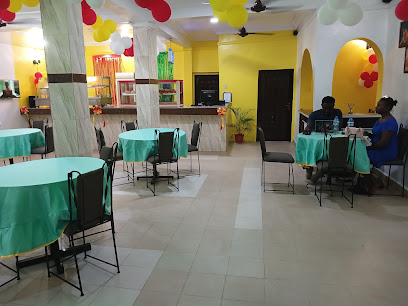
Ultimate kichen
45.9 km
Experience the fusion of traditional Nigerian flavors with contemporary cuisine at Ultimate Kitchen in Ele.

Classic Buka ( Resturant & Office Delivery
46.5 km
Discover authentic Nigerian cuisine at Classic Buka on Bonny Island – where every dish tells a story.
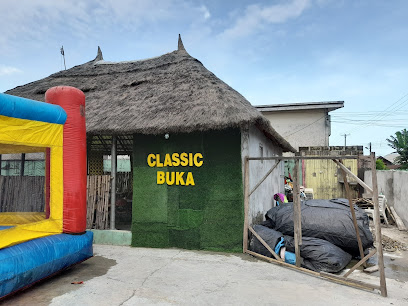
Owo Food Centre
53.3 km
Experience authentic African breakfast delights at Owo Food Centre, where every dish tells a story of rich culinary tradition.

South-South Restaurant & Bar
58.5 km
Experience authentic Nigerian cuisine at South-South Restaurant & Bar in Abuloma - where tradition meets flavor in every dish.
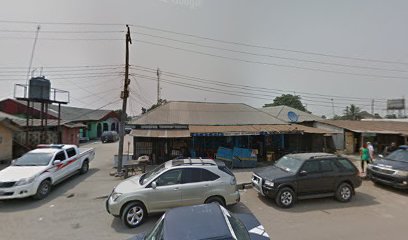
360 Bar Restaurant
58.7 km
Discover delicious breakfast delights at 360 Bar Restaurant in Oyigbo, where local flavors meet cozy dining.
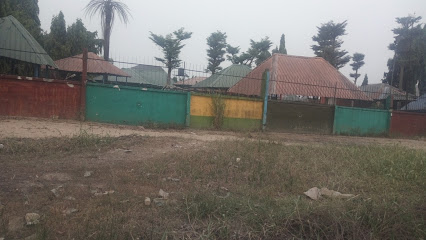
Refill Fast Food & Afrikan Dishes
58.8 km
Discover authentic African flavors at Refill Fast Food & Afrikan Dishes in Elelenwa - where tradition meets taste.
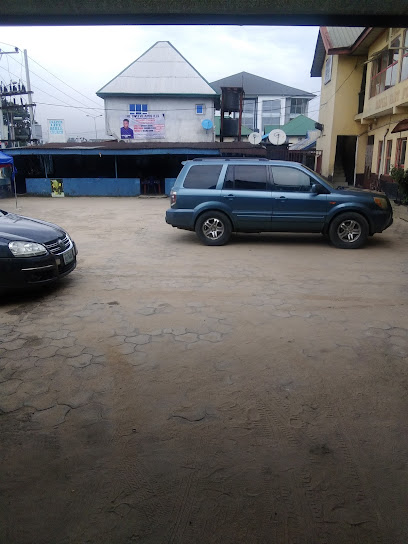
Dorothy's Restaurant
60.6 km
Discover authentic local cuisine at Dorothy's Restaurant in Elelenwo – where every dish tells a story of culinary heritage.

The Red Coral
61.2 km
Discover authentic Nigerian flavors at The Red Coral in Port Harcourt - where modern dining meets traditional culinary artistry.
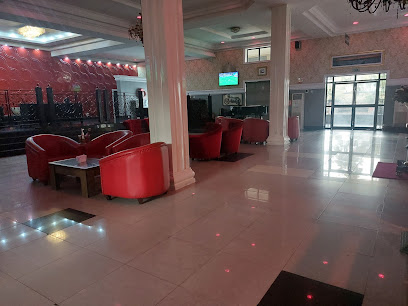
De Venuz Sit-out
61.4 km
Discover the culinary delights of Akwa Ibom at De Venuz Sit-out in Uyo - where local flavors meet global cuisine.

The Waterside Restaurant & Lounge
61.7 km
Experience the perfect blend of local flavors and international cuisine at The Waterside Restaurant & Lounge in Port Harcourt.

Collins Bukka Restaurant
61.7 km
Experience authentic Nigerian cuisine at Collins Bukka Restaurant - where tradition meets modern dining in Port Harcourt.
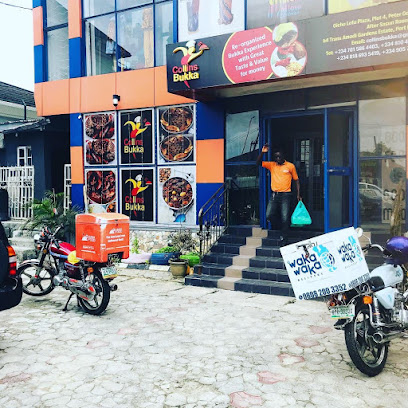
NDIDIA DEBOSS
62.0 km
Experience authentic Nigerian cuisine at NDIDIA DEBOSS in Uyo - where every meal tells a story.

Markets, malls and hidden boutiques
Ultra Modern Market Nonwa
40.3 km
Discover the vibrant culture and shopping experience at Ultra Modern Market Nonwa in Nonwa Udume, Nigeria.

Hephzibah Shopping Mall
44.6 km
Experience Eket's vibrant shopping scene at Hephzibah Shopping Mall, where fashion meets fun and entertainment for all ages.

Ikiddies Mall
44.7 km
Discover an array of home goods at Ikiddies Mall in Eket, where shopping meets local culture and style.

Switha Shopping
45.2 km
Discover local delicacies and essentials at Switha Shopping, Eket's premier supermarket for an authentic shopping experience.

Shiloh Decor & Home Accessories
45.8 km
Explore the vibrant world of local craftsmanship at Shiloh Decor & Home Accessories on Bonny Island, where unique gifts meet Nigerian artistry.

Unique Phones and Computers
50.2 km
Explore the latest in technology at Unique Phones and Computers in Kwa Ibo, where top-notch gadgets meet exceptional service.

Imeff World Boutique
52.8 km
Discover the epitome of fashion at Imeff World Boutique, a premier shopping destination for exquisite clothing and accessories in Abak, Akwa Ibom.

ÖK HOME
56.4 km
Experience vibrant shopping at ÖK HOME in Oyigbo, where local fashion meets artisanal crafts in a welcoming outlet mall.

God Gift Collection
58.2 km
Explore the charm of Elelenwa at God Gift Collection, a delightful gift shop filled with unique treasures reflecting local culture.

VENNICIO BOUTIQUE. ...YOUR PREFERRED ONE STOP FAMILY SHOP
59.8 km
Discover Vennicio Boutique in Uyo, where family-friendly shopping meets quality and variety for a memorable experience.

Beautiful Rock Supermarket
60.3 km
Discover the vibrant flavors of Port Harcourt at Beautiful Rock Supermarket, your go-to spot for fresh produce and local delicacies.
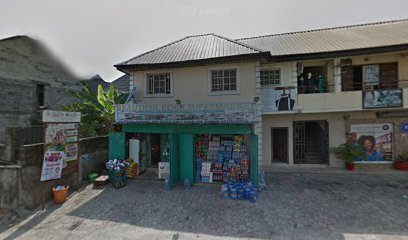
Welcome U Shopping Center
60.5 km
Explore the vibrant Welcome U Shopping Center in Port Harcourt for an unforgettable shopping and dining experience in Nigeria.

Lynique stores
60.8 km
Explore Lynique Stores in Elelenwa for an exceptional shopping experience featuring local crafts, trendy fashion, and unbeatable prices.

Posh Kiddies & Variety Stores
60.8 km
Explore Posh Kiddies & Variety Stores in Port Harcourt for a delightful shopping experience filled with toys, gifts, and local treasures for all ages.

white store
60.9 km
Explore the White Store Shopping Mall in Rumurolu for a blend of local culture, diverse shops, and delightful dining experiences.
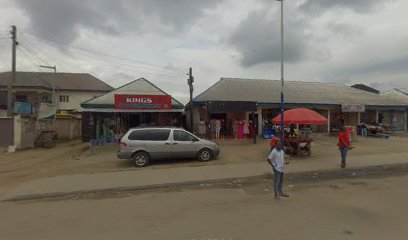
Essential bars & hidden hideouts
Rest Your Mind Bar
23.3 km
Experience the vibrant nightlife and local flavors at Rest Your Mind Bar, a perfect retreat in Notem, Rivers for tourists seeking relaxation and fun.
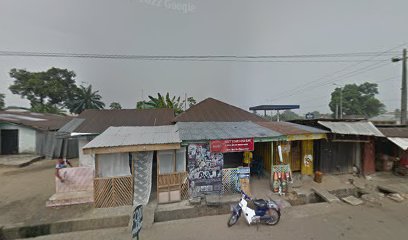
Bush Bar, Mr Iyke Resort
24.6 km
Discover the vibrant Bush Bar at Mr Iyke Resort, a perfect blend of relaxation and entertainment in Akwa Ibom, Nigeria.

C-next Bar
37.7 km
Experience the vibrant nightlife at C-next Bar in Obeakpu, where local flavors meet a lively atmosphere for unforgettable evenings.

SODI'Z
42.1 km
Discover the vibrant cocktail scene at SODI'Z, Bonny's ultimate destination for unique drinks and lively atmosphere.

Feelings Bar
42.5 km
Discover Feelings Bar in Eket, where lively atmosphere meets local flavors in a perfect blend of drinks and entertainment.
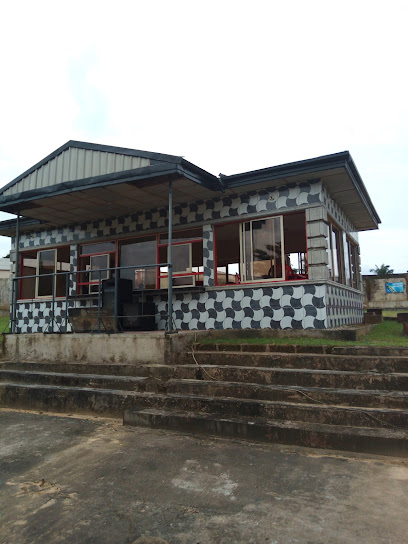
Sadafy Lounge
42.7 km
Experience vibrant nightlife and great drinks at Sadafy Lounge in Eket, a premier destination for tourists seeking fun and relaxation.

The GROOVE
43.5 km
Discover vibrant nightlife at The Groove in Bonny, where great drinks and a lively atmosphere come together for an unforgettable experience.

Barcode, Bar & Lounge
44.0 km
Discover the vibrant nightlife of Eket at Barcode, Bar & Lounge - a perfect spot for drinks, music, and unforgettable moments.
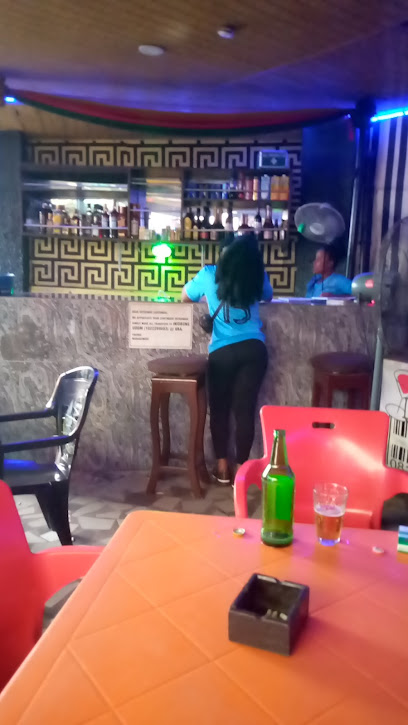
Sea View Bar
44.6 km
Discover the charm of Eyamba Town at Sea View Bar, where refreshing drinks meet breathtaking ocean views, perfect for a relaxing getaway.
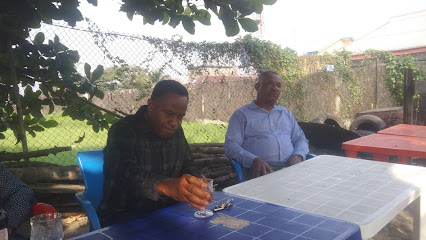
first chioce barbing saloon
44.6 km
Experience top-notch grooming and vibrant local culture at First Choice Barbing Saloon in Eket, Akwa Ibom.
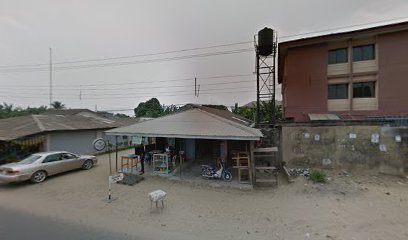
Hot Point Restaurant/Bar
44.6 km
Discover the vibrant culinary scene at Hot Point Restaurant/Bar in Eket, where local flavors and warm hospitality come together for an unforgettable dining experience.
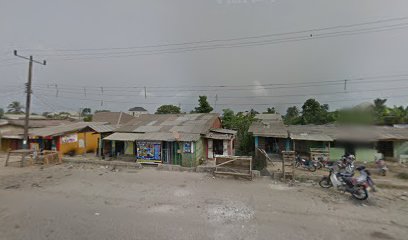
Booveri Lounge
45.8 km
Discover the pulse of Eket's nightlife at Booveri Lounge – a vibrant night club and lounge perfect for relaxation and entertainment.

JB Bar & Relaxation Center
50.1 km
Discover the vibrant atmosphere of JB Bar & Relaxation Center in Urua Inyang, a perfect spot for drinks and local culture.

Dante’s
50.9 km
Experience the vibrant flavors of local cuisine at Dante’s Grill on Ibeno Beach, Akwa Ibom, where every meal is a coastal celebration.
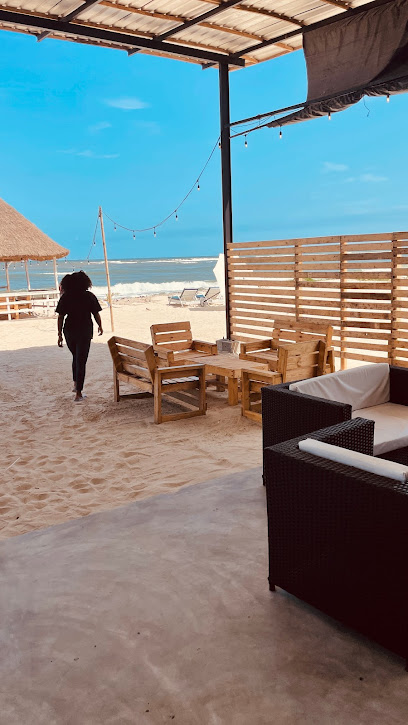
DE OFRES BAR (American
51.4 km
Discover the lively ambiance and delicious American cuisine at DE OFRES BAR in Oyigbo - a perfect spot for tourists looking to unwind.

Nightclubs & after hour spots
KAPACITY Lounge
59.4 km
Discover the exhilarating nightlife at KAPACITY Lounge, Elelenwo's premier destination for live music, great drinks, and unforgettable experiences.

Platinum Night Club
61.4 km
Discover the pulsating nightlife of Port Harcourt at Platinum Night Club, where music, dance, and vibrant energy come together for an unforgettable experience.
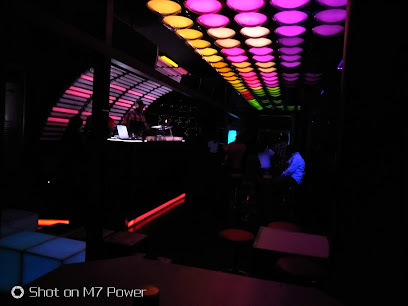
SOUTH WINGS LOUNGE
62.2 km
Experience the vibrant nightlife at South Wings Lounge, the premier destination for dancing and socializing in Elelenwa.
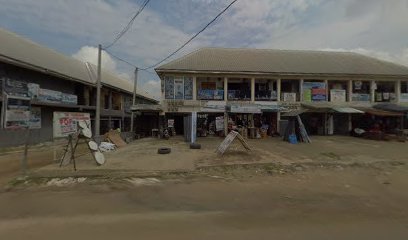
De Gatsby
63.0 km
Experience the vibrant nightlife of Uyo at De Gatsby, a stylish lounge offering exquisite cocktails and a lively ambiance for unforgettable evenings.

De Vegas Paradise
64.5 km
Experience the vibrant nightlife at De Vegas Paradise, Uyo's premier night club and bar for an unforgettable night out.
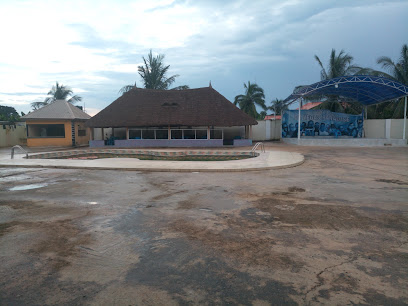
AMBER KARAOKE LOUNGE UYO
65.4 km
Immerse yourself in the lively atmosphere of Amber Karaoke Lounge Uyo, where great music, delicious food, and unforgettable nights await.

Benanti Bistro Lounge
65.4 km
Discover Uyo's nightlife at Benanti Bistro Lounge – a hub of music, culinary delight, and vibrant socializing.

Vintage Louge
65.5 km
Experience the vibrant atmosphere of Vintage Lounge in Uyo, where relaxation meets delightful cuisine and lively entertainment.
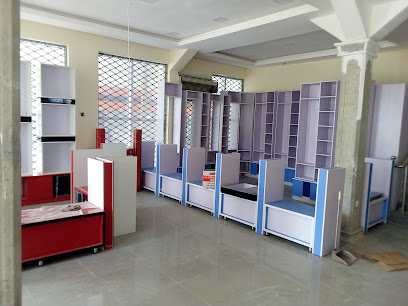
HANGOUT SPORT-BAR
65.9 km
Experience the vibrant nightlife at Hangout Sport-Bar in Uyo, where sports, drinks, and great company await every visitor.

Oxygen Club and Lounge
65.9 km
Discover the vibrant nightlife at Oxygen Club and Lounge in Uyo, where music, drinks, and unforgettable experiences await.
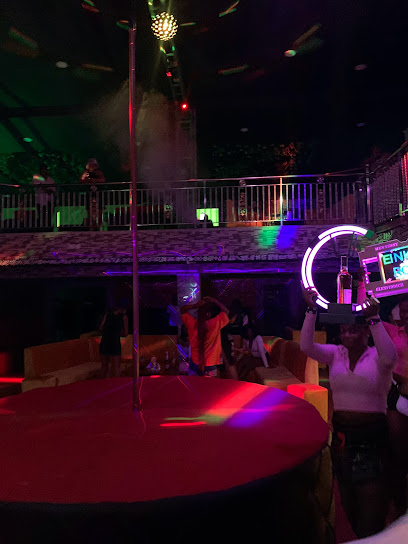
Emerald Lounge
65.9 km
Experience Uyo's vibrant nightlife at Emerald Lounge, a premier night club offering great music, lively dancing, and an unforgettable atmosphere.
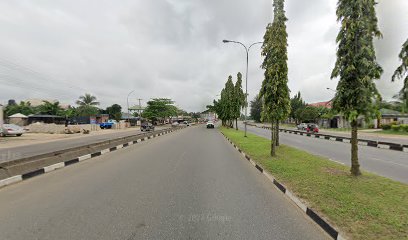
Eco Lounge
66.0 km
Experience the vibrant nightlife of Port Harcourt at Eco Lounge, where music, dancing, and unforgettable moments await.
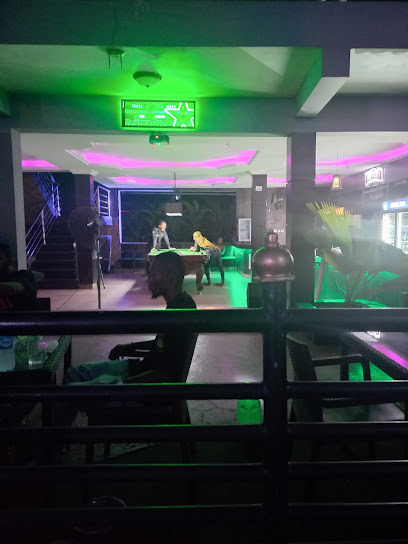
Rolex Night Club
66.1 km
Dive into the electrifying nightlife at Rolex Night Club in Port Harcourt, where vibrant music, unique cocktails, and unforgettable experiences await you.
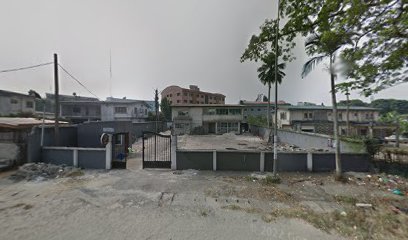
Unique Gardens and Resort
66.4 km
Experience relaxation and beauty at Unique Gardens and Resort in Uyo, where lush gardens meet a vibrant bar atmosphere.
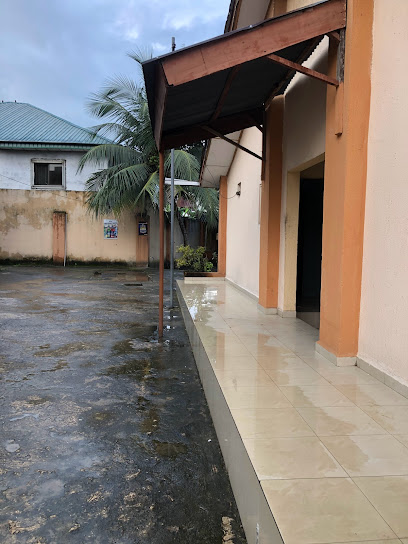
Sok Lounge, Nightclub And Restaurant
66.4 km
Discover the vibrant nightlife of Port Harcourt at Sok Lounge, a premier nightclub and restaurant offering great food, music, and an unforgettable atmosphere.
